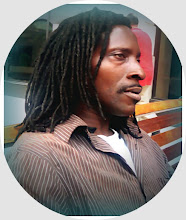
Unfortunately, it is all too possible that
Tee Scott, an innovative DJ and
producer/
remixer who began impacting New York's underground dance scene in the early '70s, will never get the due that he deserves. A shy, humble, soft-spoken individual who passed away in 1995,
Scott is just as much a key figure behind the evolution of dance
music as
François Kevorkian,
Frankie Knuckles, and
Larry Levan -- if not more so. His legendary sets at infamous clubs like Better Days and Zanzibar continue to be talked about by those who were present for them, and his often reconstructive remixes -- including
Northend's "Tee's Happy," a club hit that
Madonna more or less appropriated as the basis of "Holiday" -- trail blazed the art with methodologies that inspired peers as well as followers.
A cousin of
Scott's introduced him to clubbing in the late '60s, first at a club called Stage 45. For a few years,
Scott occasionally sneaked into the regularly packed place, which featured jukebox music and not a DJ. After that club closed,
Scott and his cousin moved on to Willy's, and then they eventually hit a place called the Candy Store, where
Scott got his first taste of club music that was played in a mixed fashion. One night in 1972, an otherwise shy
Scott inadvertently talked his way into auditioning for a DJ spot at the club. At the time,
Scott had no experience with mixing
records, although he had studied radio broadcasting and electronic engineering. After several failed auditions, he was finally given a last-minute nod for a 15-minute spot while the club was open. With a handful of his own records and a feverishly self-taught crash course in figuring out the ways of the club's DJ booth,
Scott winged it a little and did so well that he earned himself his first
DJ'ing gig; for approximately three months, he spun at the club once or twice each week.
One of
Scott's fans at the Candy Store told him about a club called Better Days that was in need of a DJ. After some propagandizing from his cousin,
Scott went down to the club and discovered that the club wasn't looking for a new DJ. However, the resident there had just upset the owner by refusing to play a request made by his wife.
Scott was granted an audition and eventually won the job. What hamstrung
Scott was the club's low-budget setup, in terms of both sound and vision.
Scott used his knowledge of electrical engineering to improve the technical capacities of the club's primitive sound system; not only did he have to make his own mixer to start off, but he also furnished and financed better lighting. Eventually the club's management kicked in with the financial support. All the while,
Scott was holding down a 9-to-5 job.
The DJ single-
handedly improved Better Days immensely from the ground up and won over its hard-to-please clientele to the point of earning their deep admiration and respect. The club was 100-percent black and mostly gay, which
Scott made efforts to shake up a little by being openly receptive and supportive to enthusiastic dancers of all types; not just one or two. Through his legendary work at Better Days, his stature increased significantly and he eventually spun at several other hot spots around the country, including New Jersey's Zanzibar,
DC's Clubhouse, and Detroit's
L'uomo, just to name a select few.
Scott became known as a master of blends -- he would often play two records (featuring live drummers, not an easy thing to do) simultaneously, such that the beats would match up. He could ride out a blend much longer than the average or even excellent jock. One night,
Scott started a trend with the addition of a third turntable to his deck. He began using the third turntable for sound effects (booms of thunder, cackles from the witch from The Wizard of Oz) that would go in and out throughout his sets, aiding in an experience that no jukebox -- let alone any other DJ -- could provide.
Scott was also one of the first
DJs to hop into the remix
game. By his own count, he ended up working on nearly 150 tracks before he quit (and quite possibly more); he was a very prolific figure.
First Choice's "Love
Thang" was his first job, and before all was said and done, he had extensive work for labels like
Salsoul, West End, and Emergency under his belt. Many times,
Scott was so unhappy with the material he had been given to work with that he would completely rewrite and reproduce the
song, turning tin into gold and affecting crowds in another way.
As much as gossip attempted to pit
Scott against so-called rivals like
Larry Levan (a pointless rivalry was conjured in an attempt to place Better Days and
Levan's Paradise Garage against each other), there was no actual animosity; quite the opposite.
Levan and
Scott would often dance at each other's clubs, and the two would go record hunting together with the Gallery's
Nicky Siano. He was extremely tight with peers and up-and-comers as well; he gave
Frankie Knuckles his first big break by offering the future Warehouse overlord two nights a week at Better Days, and he helped
Tony Humphries get a spot at Zanzibar.
For a number of reasons,
Scott more or less stopped
DJ'ingTCI in Manhattan, the school
Scott was attending, posthumously awarded him with an
associate's degree in electronics. Needless to say, an extensive overview of
Scott's remix work is long overdue, as is a revisiting of his DJ sets (à la
Larry Levan's Live at the Paradise Garage).







